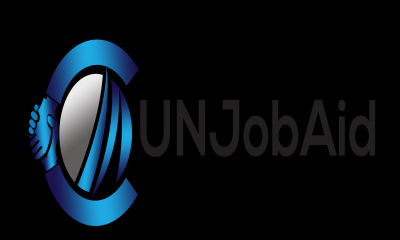How to be more efficient: stop ‘precrastinating’
Cox Gazette April 7, 2020, 12:15 AM

Whether or not we care to admit it, we’re all familiar with procrastination: waiting until the last minute to catch up with pressing tasks, often leading to subpar or incomplete work. The antidote – while easier said than done – is simply to start on your assignments sooner, long before the cut-off time so that your work reflects your full potential. But in your quest to beat procrastination, is it possible to go too far?
David Rosenbaum, a professor of psychology at the University of California, Riverside, certainly thinks so. His research focuses on the perils of “precrastination”, the tendency to rush too quickly into tasks. It can result in an expenditure of unnecessary effort that could be avoided with a bit of planning – in other words, haste makes waste.
As opposed to a procrastinator, who might leave an inbox full of emails untouched until the next day, a precrastinator would read and respond to each of them first thing in the morning. Even if they know most of the emails are unimportant, they would choose to clear them off as soon as possible. In some cases, this can mean depleting the precious energy they might need for a more urgent task later on.
So why do people precrastinate? Rosenbaum says that for most, it’s tough to resist reaching for low-hanging fruit.If something is immediately available to you, you’re instinctively wired to go for it. Think about the sweet allure of free food samples at the market. Similarly, when you complete simple short-term tasks, you have one fewer thing to think about – “I can wrap this up in five minutes. Why not take care of it now?” Personality traits such as conscientiousness, eagerness to please and high energy can predict precrastination behaviours, Rosenbaum says, but the evolutionary impulse behind them is universal.
The real downside of precrastination comes when, in your rush to finish, you encounter the naturally higher chance of doing your work incompletely or inaccurately. In the case of emails, sometimes waiting to respond can show respect for careful thought over expediency, especially if the content of the message is emotional.
Of course, precrastination is not without its benefits, but it’s critical to do so only when it makes sense. Chronic precrastinators must also realise that it’s OK to set trivial things aside, because they will not require huge mental energy later in the day, Rosenbaum says.
He argues that the managers of today would be wise to acknowledge that it’s not always best to do everything as quickly as possible. “It should be agreed in our society that it’s okay to smell the flowers,” he says. “To be deliberate, mindful and to be allowed to slow down.”
Watch the video above to learn more from David Rosenbaum, and to experience the ugly sides of precrastination.
Interview by Maddy Savage. Animation by Ginevra Boni. Additional contributions from Peter Rubinstein.
More News from Time Hacker
-

Internet access will no longer be blocked in Ukraine says Elon Musk
-

No possibility of US sanctions expansion: Shahriar
-

UNHCR and IOM Condemn Deadly Attack on Displacement Site in DR Congo
-

Teleworking during COVID: Risks, benefits and steps to a ‘new normal’
-

Army officer among 4 dead in Bandarban gunfight
-

Health tech startup Best Aid raises investment from YY ventures.
-

DiCaprio praises Bangladesh on new marine protected area around St Martin`s
-

Guterres calls for end to conflict in Ethiopia after deadly attacks
-

Rohingya refugee camps hit by second fire in 10 days ,Leaving thousands homeless
-

BNCA begins a shadow investigation into elephant killing in Cox’s Bazar
-

One more elephant found dead in Cox`s Bazar, death toll 7 in 11 days
-

Shahriar Nisan joins BDMORNING as Acting Editor
-

Two more Rohingya men arrested over Mohib Ullah killing
-

One arrested over Rohingya leader Muhib Ullah killing.
-

Hundred Plus UN Job Openings in a glance
-

Youth empowerment for tourism’s future ,The eight winning solutions
-

UN Refugee agency condemns killing of Rohingya refugee leader
-

Thousands of `Rohingya Refugees` pay their last respects to Mohib Ullah
-

Rohingya Leader Mohibullah Killed in Cox`s Bazar camp
-

Internet connection cuts off in more than ` 25 `townships in northwestern Myanmar






Write Your Opinion :